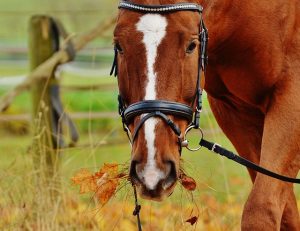The Florida Department of Agriculture and Consumer Affairs reports one horse in St. Johns County, Florida was confirmed positive for Eastern Equine Encephalitis (EEE) on Jan. 12, the first case of the year.

The 2 year old miniature horse gelding became clinical on Jan. 10 and was euthanized on Jan. 16 due to a poor prognosis. The vaccination history is unknown.
In 2017, EEE positive samples from one human from Duval County, six horses, one deer, and forty-three sentinel chickens have been reported from fourteen counties.
EEE is a mosquito-transmitted disease that is much more severe than West Nile Virus (WNV). The mortality rate in horses from WNV is reported at around 30%, while the rate for EEE is almost 90%. Infected mosquitoes are the primary source for EEE.
The virus causes inflammation or swelling of the brain and spinal cord. General symptoms include central nervous system signs such as: head pressing, convulsions, lack of response to facial stimulation, fever above 103 degrees, ataxia, paralysis, anorexia, depression and stupor. Other symptoms may include irregular gait, teeth grinding, in-coordination, circling, and staggering. All symptoms may not be exhibited by an infected horse.
Effective equine vaccines for EEE and WNV are available commercially. Horse owners should contact their veterinarians if their horses are not already up-to-date on their vaccinations against both EEE and WNV.


